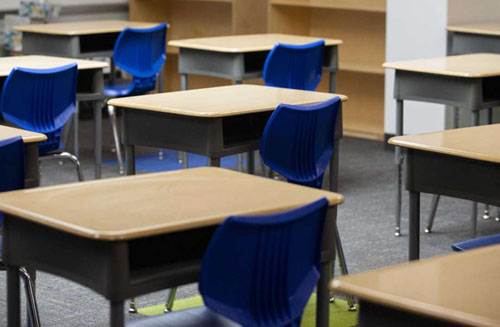by WorldTribune Staff, August 6, 2020
Millions of children in low-income households across the United States do not have “family lives that correspond well with at-home virtual learning,” a columnist noted.
Teachers unions are well aware of this, but are “fighting hard” to keep the schools closed this Fall, Cheryl K. Chumley wrote for The Washington Times on Aug. 6.

“It’s a fight that really has little to do with what’s best for kids and almost all to do with what’s most profitable and lucrative for union leaders,” Chumley wrote.
“For unions, it’s all about winning political concessions — it’s all about exploiting the pandemic to score better pay, better benefits, better this and better that.”
The unions, Chumley noted, could care less about the vulnerable children who don’t have instant Wi-Fi access or don’t have computers in their homes.
According to The Washington Post, 700,000 students in California will be shut out of online learning because they don’t have computers.
“That’s a tragedy — and it’s being replicated at spots around the nation,” Chumley noted.
Home school advocates see opportunity in the shutdowns, but “many parents aren’t equipped with the tools to home-school; some may find the sudden responsibility too daunting to deal with — others, impossible to swing with at the same time provide economically for the family. Still others just don’t have the education levels themselves to successfully teach their kids.” Chumley wrote.
“Still others are too strung out on drugs to help their kids,” Chumley continued. “It’s an ugly truth, but one that needs to be considered: Pretending a child with a mother who’s addicted to heroin can adequately access an online and virtual course on math — and pass — is ludicrous.”
America, unfortunately, “has succumbed to the leftist version of constitutional authorities and allowed government to take over the education of our nation’s youth,” Chumley noted. “Too many parents depend on that system to switch suddenly, overnight, due to a coronavirus, to a more family-dependent type of learning environment. The most vulnerable are going to be left behind.”
Virtual learning may be fine for children with of “the haves of society,” Chumley wrote. “As for the rest? As for for the kids from broken, violent, drug-infested, gang-influenced, abuse-ridden homes? The have-nots? What a disaster. There goes their already slim, dim chances.
“And from a societal point of view, the end result will be a wider gap between the haves and have-nots that will ripple for decades in politics, culture and economics. The children — all the children — are the future.”
Intelligence Brief __________ Replace The Media
